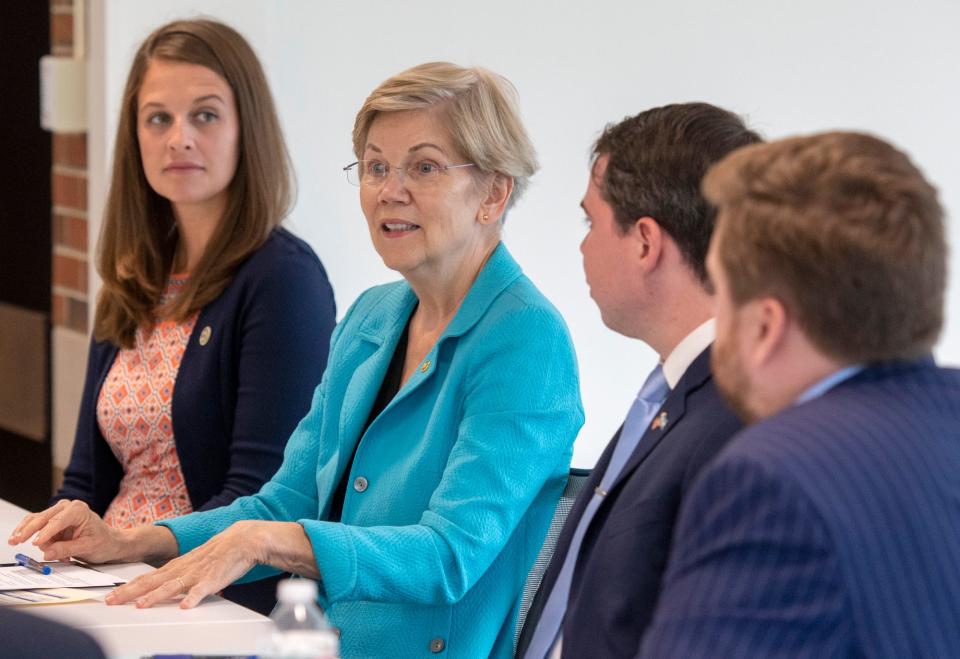Experts cite regional job surplus amid labor shortage
GARDNER ― There are definitely enough jobs out there.
That’s the opinion of Maedon Coburn, who has been operating Appleseed Personnel Services in Leominster for more than three decades. The problem, she says, is that there just aren’t enough people in the area working or even looking for employment. And the issue has been evident for at least the last few years.
Coburn can think of several reasons for why the local region was experiencing a widespread labor shortage, but she would prefer only a few make it onto the record.
“Maybe there are some people who are still leery of COVID,” Coburn said. “That’s an excuse that we get because a lot of people are now looking for remote work. But in manufacturing, that’s kind of impossible.”
The current local labor force situation was actually predicted by several industry analysts over the past few decades.
“The Baby Boomers are retiring, and babies are not being born at the same rate,” she said. “So, I actually think we have a people shortage that we’re going to have to deal with.”

Heywood Healthcare, which employs about 1,600 workers in North Central Massachusetts, is facing the same labor shortage as any other company in the region, Vice President of Human Resources Paul Heffernan said.
“We’re seeing the same challenges that many non-hospital employers are seeing,” he said, adding that the search for new employees was made even more challenging because of the specialty job classifications needed in the healthcare industry. “Such as radiology, laboratory, respiratory – there’s a smaller pool of individuals to recruit from.”
The limited number of qualified applicants in the healthcare industry also meant that more hospitals across the region were competing to hire the same employees, Heffernan added.
“What you’re seeing is that a lot of organizations – ourselves included – have sign-on bonuses, employee referral bonuses, and retention bonuses,” he said. “There’s a lot that goes into trying to outpace your competition.”
Employers, recruiters point to aftereffects of the pandemic
The current labor shortage combined with the last few years of people working primarily from home altered the life-work balance for at least the foreseeable future, Coburn said.
“I think people have gotten used to a certain way of life over the past two years, and they’re having a little bit of trouble coming back around,” she said. “I think people got complacent in not having to leave their homes and not having to worry about daycare, but we’re going to get back to whatever that ‘normal’ is.”
In August, U.S. Sen. Elizabeth Warren met with Greater Gardner officials to discuss the labor shortage, child care and the lingering effects of the pandemic shutdown among other topics.
More recently, Heffernan said there were some people who were hesitant to consider a career in healthcare due to the lingering effects of the pandemic, but he urged anyone interested in the field to look at some of the other jobs that were available.
“When people think of healthcare, they think of nurses and doctors, but there are so many more career opportunities (here),” he said. “We have openings in just about every job classification.”
There was an especially high demand in the healthcare field for laboratory technicians and surgical technicians. Employees willing to work overnight shifts were also highly sought in the industry, Heffernan said.
“If you’re interested in working nights," he said, "we have openings for you.”
However, the labor situation would appear to be improving somewhat, at least in the food and service industry. Stacey Kazinskas, general manager of the Gardner Ale House and Moon Hill Brewing Co. in Gardner, said she has managed to retain about 60 workers in Gardner and about 20 in Phillipston in recent months.

“Hiring as become slightly easier,” she said. “More applications have been coming in over the hiring platform that we use. They are certainly not flowing in over our website as in the years pre-Covid. We are retaining applicants more as well.”
Kazinskas is bullish about the future labor market.
“I foresee things getting better and better," she said, "and am hopeful for the next year.”
The lack of prospective employees was something that was reverberating throughout the industry, from the offices at Appleseed Services all the way up to the large corporations for which Coburn provides staffing services.
“Everybody’s feeling this,” she said. “And I think we’re at a really odd time of transition, because we can’t continue like this."
Coburn urged anyone seriously looking for employment to visit her at Appleseed Personnel Services at 305 Whitney St. in Leominster.
“We have clerical work, we have light industrial work – there is work for people who want it,” she said.
Appleseed, which was founded in 1981, is currently accepting applications at 31 Lake St., in Gardner on Thursdays from 2 - 4 p.m. Coburn said she hopes the Gardner office will create connections with employees who might have an issue finding transportation to Leominster, Coburn said.
“My advice to job-seekers is to go get the job," she said, "go in person and talk to someone about what you want to do.”
This article originally appeared on Gardner News: Jobs outlook story

